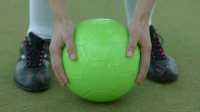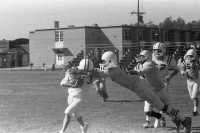MedicalResearch.com Interview with:
Henry Mahncke, PhD
Chief Executive Officer
Posit Science
Dr. Mahncke earned his PhD at UCSF in the lab where lifelong brain plasticity as discovered. At the request of his academic mentor, he currently leads a global team of more than 400 brain scientists engaged in designing, testing, refining, and validating the computerized brain exercises found in the BrainHQ app from Posit Science, where he serves as CEO.
This week, MedicalResearch.com interviews Dr. Mahncke about a new study, with breakthrough results for service members and Veterans grappling with the signature injury of recent wars.
MedicalResearch.com: What makes this study newsworthy?
Response: As the last troops come home from Afghanistan, the battle is not over for many who served and continue to grapple with the signature injury of recent conflicts — mild Traumatic Brain Injury (or mTBI). Typically, such injures were caused by blasts or concussions, and they’ve been diagnosed in more than 300,000 service members. Most recover within a couple days or weeks, but for many — some estimate fifteen percent — physical, psychological, emotional, and cognitive problems persist for years. Such injuries often go untreated, because treatments focus on in-person, customized, cognitive rehabilitation, which can be helpful, but is costly, time-consuming, requires travel for treatment, and relies on the craft and expertise of the healthcare provider.
Up until now, there’s been no effective intervention that’s highly-scalable and that can be delivered remotely. This study showed that remotely-administered
BrainHQ computerized exercises improved overall cognitive performance in a population with very persistent cognitive issues. On average, patients in this study had cognitive issues for more than seven years. That means we finally have a tool shown effective in a gold-standard study that practitioners can employ in treating this large and underserved population, who sacrificed so much to serve our nation.
(more…)



 Sean C. Rose, MD
Child Neurology
Nationwide Children’s Hospital
The Ohio State University, Columbus
MedicalResearch.com: What is the background for this study? What are the main findings?
Response: There is conflicting evidence regarding the association between repetitive head impacts during youth contact sports and worse neurocognitive outcomes. Most research has been conducted in older adults, while the research in children is mostly limited to 1-2 sports seasons.
Sean C. Rose, MD
Child Neurology
Nationwide Children’s Hospital
The Ohio State University, Columbus
MedicalResearch.com: What is the background for this study? What are the main findings?
Response: There is conflicting evidence regarding the association between repetitive head impacts during youth contact sports and worse neurocognitive outcomes. Most research has been conducted in older adults, while the research in children is mostly limited to 1-2 sports seasons.














 Sean C. Rose, MD
Pediatric sports neurologist and co-director
Complex Concussion Clinic
Nationwide Children’s Hospital
Assistant professor of Pediatrics
The Ohio State University
MedicalResearch.com: What is the background for this study? What are the main findings?
Response: The link between sub-concussive head impacts and declines in neurocognitive function has been reported by some studies, yet refuted by others. There is very little evidence that has been collected in children as they are sustaining these head impacts.
We initiated a multi-year study of youth football players to provide a more in-depth look at the question. We measured head impacts using helmet sensors during the 2016 football season. 112 players age 9-18 completed a battery of neurocognitive tests before and after the football season.
We found that neither the total burden of head impacts nor the intensity of individual impacts were associated with changes in testing performance from pre to post-season.
Sean C. Rose, MD
Pediatric sports neurologist and co-director
Complex Concussion Clinic
Nationwide Children’s Hospital
Assistant professor of Pediatrics
The Ohio State University
MedicalResearch.com: What is the background for this study? What are the main findings?
Response: The link between sub-concussive head impacts and declines in neurocognitive function has been reported by some studies, yet refuted by others. There is very little evidence that has been collected in children as they are sustaining these head impacts.
We initiated a multi-year study of youth football players to provide a more in-depth look at the question. We measured head impacts using helmet sensors during the 2016 football season. 112 players age 9-18 completed a battery of neurocognitive tests before and after the football season.
We found that neither the total burden of head impacts nor the intensity of individual impacts were associated with changes in testing performance from pre to post-season.



